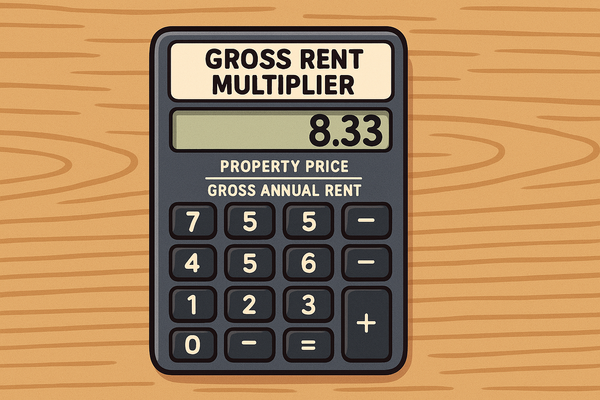Oregon Squatters Rights Guide: Understanding Adverse Possession Laws
Required occupation period: 10 years in Oregon; Occupation must be without significant interruptions for the full decade

From the squatters causing a ceiling collapse and flooding in a neighboring rental, to the homeowner who has been paying for a house they can't live in, or worse, the homeowner who had to befriend the squatters in her $300,000 home just to reclaim it, Oregon property owners face unique challenges with unauthorized occupants.
These real-life nightmares underscore why understanding Oregon's complex adverse possession laws isn't just a bunch of legal mumbo jumbo—it's essential protection for your property investment and personal safety in a state where the eviction process can stretch for months while squatters gain increasing legal leverage–and maybe even gain your property.
Introduction to Squatters' Rights in Oregon
- Definition of squatters vs. trespassers in Oregon: In Oregon, squatters occupy property without legal right but with potential adverse possession claims, while trespassers are unauthorized occupants with no intention of ownership claims.
- Basic overview of adverse possession in Oregon: Oregon's adverse possession laws allow individuals to gain legal title to property through continuous, open, and exclusive possession for a statutory period, without the rightful owner's permission.
- Why property owners should understand these laws: Understanding Oregon squatters rights laws helps property owners protect their real estate investments from unauthorized occupation and potential adverse possession claims.
- Historical purpose of adverse possession laws: Adverse possession laws originated to ensure productive land use, resolve boundary disputes, and clarify property ownership when documentation was incomplete.
Squatter Snippet: Real Case from Oregon
In 2022, a Portland homeowner returned from vacation to find squatters had completely taken over his Southeast Portland house. When he confronted them, the squatters physically assaulted him, sending him to the hospital. Despite still paying his $1,500 monthly mortgage, the legitimate owner was too afraid to return to his own dwelling unit.
Caught in a legal maze where police classified the situation as a "civil issue" rather than criminal trespass, the homeowner eventually listed the property for sale at $330,000 with the caveat that any buyer would need to handle the squatter eviction themselves. This case highlights the critical importance of understanding Oregon's squatter laws for property owners across the state.
Key Timeline: Statutory Period in Oregon
- Required occupation period: 10 years in Oregon
- Continuous possession requirement: Occupation must be without significant interruptions for the full decade
- Comparison with neighboring states:
- Washington: 7 years with color of title, 10 years without
- California: 5 years with property tax payments
- Idaho: 5 years with tax payments and color of title, 20 years otherwise
- Timeline exceptions:
- Military service of the property owner may pause the statutory period
- Legal incompetence/disability of the property owner may extend timelines
CHART: Adverse Possession Timeline Comparison
| State | Required Years | Special Conditions |
|---|---|---|
| Oregon | 10 years | Claimant must have "honest belief" in ownership |
| Washington | 7-10 years | 7 years with color of title, 10 without |
| California | 5 years | Must pay property taxes |
| Idaho | 5-20 years | 5 years with tax payments and color of title |
| Nevada | 5-15 years | 5 years with color of title, 15 without |
Quick Guide for Property Owners
Oregon's adverse possession laws are uniquely strict compared to neighboring states due to the "honest belief" requirement established in 1989. This provision demands that an adverse possessor must have genuinely believed they were the actual owner when first occupying the property.
In a shocking 2022 case in Portland, a homeowner continued paying his mortgage for a house occupied by squatters who violently prevented him from entering, demonstrating the potential nightmare scenarios that can unfold when property owners aren't vigilant about unauthorized occupation.
- Know your timeline: Squatters can claim rights after 10 years of continuous occupation in Oregon
- Documentation matters: Keep property records, tax receipts, and inspection logs to prove ongoing ownership
- Regular monitoring required: Vacant properties are most vulnerable to squatter claims
- Legal obligation: Self-help eviction methods are illegal in Oregon; property owners must follow proper legal procedures
- Act quickly: The longer squatters remain, the stronger their potential adverse possession claim becomes
- Proper notices: Follow Oregon's legal procedures when removing unauthorized occupants to avoid liability
Prevention: Protecting Your Property
Oregon property owners face unique challenges when protecting their real estate from potential adverse possession claims. Court records show that vacation homes and properties left vacant for extended periods are particularly vulnerable targets in Portland and throughout the state.
Oregon courts give significant weight to evidence of regular property inspections and security measures when evaluating adverse possession cases, with documented visits often being key to defeating squatter claims.
- Regular inspections:
- Visit property at least quarterly
- Document each visit with dated photos/notes
- Consider installing security cameras with timestamp features
- Effective security measures:
- Secure all entry points with quality locks
- Consider alarm systems with remote monitoring
- Install motion-activated lighting around the property perimeter
- Clear signage:
- Post "No Trespassing" signs visibly at all potential entry points
- Mark property boundaries clearly with fencing where practical
- Property management options:
- Hire professional property management for vacant properties
- Consider short-term rental options for seasonal properties
- Documentation practices:
- Keep tax payment records organized and accessible
- Maintain utility connections even for vacant properties
- Take dated photographs of property condition regularly
CHART: Property Risk Assessment Matrix
| Property Type | Risk Level | Recommended Prevention | Estimated Cost |
|---|---|---|---|
| Vacant Land | High | Professional monitoring, clear boundary markers, regular inspections | $$$-$$$$ |
| Abandoned Building | Very High | Security service, alarm system, reinforced entry points, weekly checks | $$$$-$$$$$ |
| Seasonal Property | High | Property management service, security system, neighbor monitoring | $$$-$$$$ |
| Investment Property | Medium | Professional management, tenant screening, quarterly inspections | $$-$$$ |
Removing Squatters: Step-by-Step Process
Oregon's eviction laws require property owners to follow specific legal procedures when removing unauthorized occupants. Under ORS 105.105 through 105.168, self-help eviction methods such as changing locks or shutting off utilities are strictly prohibited, exposing property owners to potential legal liability.
Unlike neighboring states, Oregon does not offer expedited eviction options specifically for squatters, requiring the same eviction process used for legitimate tenants. To, perhaps, add insult to injury, penalties for illegal self-help evictions in Oregon can include damages of up to three months' rent plus attorney fees.
- Document the situation:
- Take photos/video evidence of the squatter occupation
- Gather ownership documents (deed, tax records, mortgage statements)
- Record dates of discovery and any interactions
- Issue proper written notice to vacate
- For squatters claiming tenancy: 30-day or 60-day notice depending on occupancy length
- For squatters with no tenancy claim: 24-hour notice for unlawful occupancy
- File appropriate legal complaint:
- File a complaint of forcible entry and detainer (FED) in Oregon Circuit Court
- Include all ownership documentation and evidence of unauthorized occupation
- Pay filing fees (approximately $158-$255 depending on county)
- Attend court hearing
- Be prepared to prove legal ownership
- Present evidence of unauthorized occupation
- Counter any false claims of tenancy
- If successful, obtain a judgment for possession
- Court will issue a notice of restitution giving squatters 4 days to vacate
- Sheriff enforces removal, not property owner
- Sheriff will post notice of eviction
- Sheriff will physically remove squatters if necessary
- What NOT to do:
- Do not change locks yourself
- Do not shut off utilities
- Do not remove squatter's belongings
- Do not threaten or intimidate
- Do not use physical force or self-help methods
- Timeline expectations:
- Notice period: 24 hours to 60 days, depending on circumstances
- Court processing: 2-4 weeks
- Eviction enforcement: 4-10 days after judgment
CHART: Eviction Process Timeline
Oregon's specific eviction timeline is governed by ORS 105.135, which mandates a first appearance in court within 8-10 days after filing. According to data from the Oregon Judicial Department, the average processing time for forcible entry and detainer actions in 2023 was 24 days from filing to judgment.
Landlords and property owners dealing with squatters should note that Oregon provides no expedited process for squatter removal compared to standard tenant evictions.
[Discovery of Squatter] → [Documentation: 1-2 days] → [Notice to Vacate: 1-60 days] →
[Court Filing: 1 day] → [Waiting for Hearing: 8-10 days] → [Court Hearing: 1 day] →
[If successful, Wait for Notice Period: 4 days] → [Sheriff Enforcement: 3-5 days] → [Property Returned]
Total estimated timeline: 18-83 days
Legal Requirements for Adverse Possession
Oregon courts interpret the "OCEAN" criteria (Open, Continuous, Exclusive, Adverse, Notorious) through a uniquely stringent lens established by key cases such as Hoffman v. Freeman (2006) and Pickett v. Nelson (2008). Unlike neighboring states, Oregon applies a "clear and convincing evidence" standard to adverse possession claims, requiring substantially more proof than the typical "preponderance of evidence" standard.
Oregon's landmark case Mid-Valley Resources, Inc. v. Engelson (1999) established that even long-term possession cannot override a documented legal title without satisfying all statutory elements.
- Hostile/Adverse Claim
- In Oregon, requires "honest belief" in ownership when possession begins
- Post-1989 cases require objective basis for belief in ownership
- Common misunderstanding: intentional squatting cannot qualify
- Actual Possession
- Physical occupation and use consistent with property type
- Evidence includes structures, improvements, maintenance
- Courts look for acts that would give notice to a reasonable owner
- Open and Notorious Possession
- Occupation must be visible to a reasonably attentive owner
- Must be apparent to neighbors and community
- Secretive or hidden occupation disqualifies the claim
- Exclusive Possession
- Claimant must exclude others, including the rightful owner
- Must exercise control similar to a true owner
- Shared use with the rightful owner defeats this element
- Continuous Possession
- Full 10-year period in Oregon without significant gaps
- Seasonal use may qualify if consistent with property type
- Temporary absences allowed if intention to return is clear
CHART: Adverse Possession Requirements Matrix
| Requirement | Required in Oregon? | Evidence Courts Accept | Common Pitfalls |
|---|---|---|---|
| Hostile/Adverse | Yes | Documentation of "honest belief," objective basis for ownership belief | Post-1989 requirement for "honest belief" disqualifies intentional squatting |
| Actual Possession | Yes | Improvements, maintenance, utility bills, witness testimony | Irregular or minimal use deemed insufficient |
| Open & Notorious | Yes | Visible improvements, statements to neighbors, community recognition | Hidden occupation or secretive use invalidates claim |
| Exclusive | Yes | Fencing, posted signs, preventing others' use | Sharing use with true owner defeats claim |
| Continuous | Yes | Dated photos, witness testimony, continuous improvements | Significant gaps in possession reset 10-year period |
Frequently Asked Questions
- "Can I remove squatters myself in Oregon?"
- No, self-help eviction is illegal in Oregon
- Property owners must follow legal eviction process through the courts
- "Do squatters have to pay property taxes in Oregon?"
- Tax payment is not required for adverse possession in Oregon
- However, tax payment can strengthen an adverse possession claim
- "What's the difference between a squatter and a trespasser in Oregon?"
- Trespassers: Short-term unauthorized presence with no claim of right
- Squatters: Ongoing occupation with potential adverse possession claim
- "Who should I contact first in Oregon - police or sheriff?"
- For immediate safety concerns or obvious break-ins: Police
- For eviction enforcement after court judgment: Sheriff
- "Can squatters claim abandoned property in Oregon?"
- Yes, abandoned properties are particularly vulnerable to adverse possession
- Property abandonment may strengthen an adverse possession claim
- "How quickly can I evict a squatter in Oregon?"
- Typical timeline: 18-83 days
- Factors affecting timeline: court schedule, notice requirements, squatter response
CHART: Decision Tree for Property Owners
Oregon's property laws distinguish between criminal trespass (ORS 164.255) and civil unlawful occupancy situations. According to Portland Police Bureau protocols, officers typically refer property disputes to civil courts unless there is evidence of forced entry or immediate safety concerns.
The Oregon Residential Landlord Tenant Act further complicates enforcement by providing tenant protections that squatters may attempt to claim.
Discovered Someone on Your Property
├── Emergency/Dangerous Situation? → Yes → Call Police (911)
│ └── No ↓
├── Recent Entry (Less than 24 hours) with Forced Entry? → Yes → Call Police (Non-emergency)
│ └── No ↓
├── Evidence of Established Occupation? → Yes → Legal Eviction Process Required
│ └── No ↓
└── Uncertain Situation → Consult Real Estate Attorney Before Taking Action
Recent Legislative Changes in Oregon
Oregon's legislature has actively addressed property rights issues in recent sessions, with several significant changes affecting adverse possession and eviction procedures.
Senate Bill 593, enacted in 2025, strengthened property owners' protections against adverse possession claims by requiring squatters to present substantial evidence of continuous occupation.
- Recently Passed Laws:
- Senate Bill 593: Passed February 2025, this law strengthened evidence requirements for adverse possession claims
- Impact on property owners: Creates higher burden of proof for squatters claiming adverse possession
- Effective date: June 1, 2025
- Pending Legislation:
- House Bill 4132: This bill is currently being debated in the Oregon legislature. It would significantly change the process for removing squatters from properties. Key provisions include:
- Allowing property owners to evict squatters with just 24 hours' notice
- Defining squatters as individuals occupying a property without a valid rental agreement or tenant authorization
- Simplifying the eviction process for property owners by clarifying that squatters do not possess tenant rights
- Categorizing squatting as unlawful occupancy, making it easier for law enforcement to remove squatters once an eviction order is served
- House Bill 4132: This bill is currently being debated in the Oregon legislature. It would significantly change the process for removing squatters from properties. Key provisions include:
- Legislative Trends:
- Oregon legislature increasingly focused on protecting property owners
- Following national trend toward strengthening private property rights
State-Specific Considerations
- "Honest Belief" Requirement in Oregon:
- Definition: Claimant must have genuinely believed they owned the property when possession began
- Impact on statutory period: No reduction, but substantially increases difficulty of successful claims
- Documentation requirements: Must show objective basis for belief in ownership
- Burden of proof requirements:
- Squatter must prove all elements by "clear and convincing evidence"
- Significantly higher standard than neighboring states
- Recent legal developments:
- Martin v. City of Grants Pass (2024): Supreme Court ruling on anti-camping ordinances affects how cities manage public property occupations
- Pending legislation on expedited removal processes
- How Oregon differs from neighboring states:
- "Honest belief" requirement unique to Oregon
- Stricter evidence standards than Washington, California, or Idaho
- No reduction in statutory period for color of title or tax payments
CHART: Oregon vs. Neighboring States Comparison
| Factor | Oregon | Washington | California | Idaho |
|---|---|---|---|---|
| Statutory Period | 10 years | 7-10 years | 5 years | 5-20 years |
| Color of Title Impact | No reduction | Reduces to 7 years | Required | Reduces to 5 years |
| Tax Payment Required | No | No | Yes | For shortened period |
| Special Conditions | "Honest belief" required | None | Must pay taxes | Written instrument for shortened period |
| Strictness Rating | 5/5 | 3/5 | 4/5 | 3/5 |
Advanced Legal Process
- Court proceedings require filing a Complaint for Forcible Entry and Detainer (FED) in Oregon Circuit Court
- Evidence must include proof of ownership (deed, title insurance, tax records)
- Potential outcomes range from immediate eviction to recognition of squatter rights in rare cases
- Monetary judgments may include damages for unauthorized use, property damage, and legal costs
- Impact on property title requires filing court judgment with county recorder to clear adverse claims
- Special provisions exist for legally incompetent property owners, extending statutory periods
Real-World Examples
- Portland Ceiling Collapse Case (2023): Lucas Porter endured squatters occupying the unit above his Southeast Portland condo, causing flooding that collapsed ceilings throughout his home. The case highlighted how adjacent properties can be severely impacted by squatter situations.
- The Flavel Street House (2022): A Portland homeowner was physically assaulted when attempting to reclaim his house from squatters, resulting in hospitalization and eventually forcing him to sell the property at a discount to a buyer willing to handle the squatter situation.
- The Kate Gardner Success Story (2023): A 21-year-old entrepreneur purchased a Southeast Portland home with squatters for $315,000, then spent a month building relationships with the occupants to peacefully resolve the situation before completing renovations.
Resources
- Current Oregon Squatters Rights Laws:
- Oregon State Legislature - ORS 105.620
- Last updated: March 2025
- Recent/Pending Legislation:
- Oregon Legislature - Senate Bill 593
- Bill status: Passed, effective June 2025
Legal Disclaimer
DISCLAIMER: The information provided in this guide is for general informational purposes only and should not be construed as legal advice on any subject matter. The content contained herein does not establish an attorney-client relationship.
This guide about Oregon squatters' rights and adverse possession laws is intended to provide general information and should not be relied upon as legal advice. Laws and regulations regarding property rights, adverse possession, and eviction procedures vary by jurisdiction and may change over time. The information presented here may not reflect the most current legal developments or address your specific situation.
No reader should act or refrain from acting based on information in this guide without first seeking professional legal advice. Property owners dealing with squatters should consult with a qualified attorney licensed to practice in Oregon for advice tailored to their particular circumstances.
The authors, publishers, and distributors of this guide expressly disclaim all liability in respect to actions taken or not taken based on any or all of the contents of this document. They shall not be responsible for any errors or omissions in this information or any consequences arising from its use.
This guide is provided "as is" without warranty of any kind, either express or implied, including but not limited to implied warranties of merchantability, fitness for a particular purpose, or non-infringement.
Copyright © 2025 LandlordDoc.com. All rights reserved.





